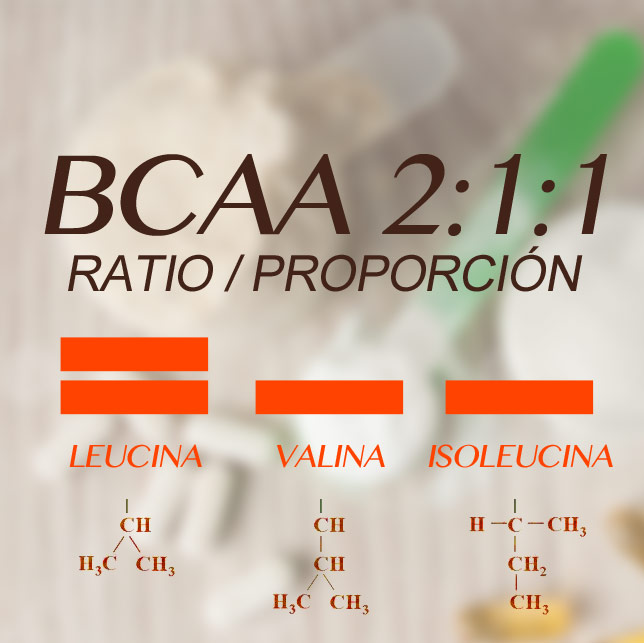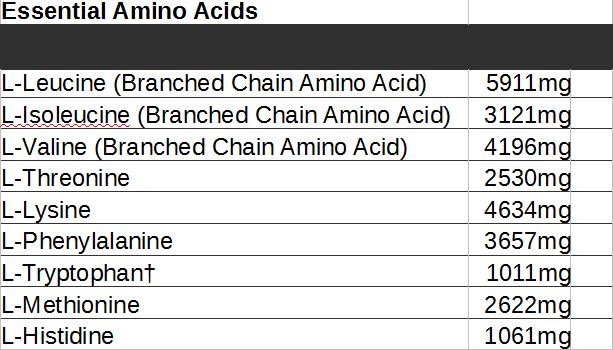What are BCAAs?
BCAAs are essential amino acids that your body does not produce naturally. BCAAs consist of 3 specific amino acids – leucine, isoleucine, and valine, not to be confused with protein.
Who should take BCAA?
BCAA is a popular bodybuilding supplement, but people suffering from amino acid deficiency can also benefit.
What do BCAAs do to your mind?
When you supplement with BCAAs, l-tryptophan activity in the brain is reduced, thus delaying mental fatigue.
When should you take BCAAs?
You can take your BCAAs as a pre-workout supplement.
What is the proper dosage of BCAAs?

The 2:1:1 ratio is the most common despite new supplements are now offering BCAAs in a higher proportion of 7:1:1. The 2:1:1 ratio refers to 50% leucine, 25% isoleucine, and 25% valine, and the ideal quantity according to online reviews should be 7 grams per serving.
Who could benefit the most from BCAAs?

BCAAs can increase the performance of athletes and bodybuilders while boosting protein synthesis and muscle recovery and reducing delayed onset muscle soreness (DOMS) felt in muscles several hours after energetic exercises.
Dieters or sports competitors aiming at lean muscle gains are interestingly the ones who may benefit the greatest. It is so because during a diet, alongside fat loss, muscle loss is hard to avoid.
However, a study found that people supplementing with BCAAs can lose weight without wasting their muscles and performance. So, from one point of view, it could be that even if you are an amateur sportsman just following a strict diet to lose weight and keep fit, you may not end up becoming a weak person because of lack of food if you choose to supplement with BCAAs, which will keep your muscles.
To reap any benefit, supplementing with BCAAs requires consistency
Just taking BCAAs won’t bring you the expected gains. No pain, no gain! It turns out, while supplementing on BCAAs, you would need to exercise consistently.
Three studies were carried out, and three perspectives were revealed.
Study 1 – No success
Study 1 shows that BCAAs were unsuccessful for non-resistance trained rookies who were exercising four times per week with three sets of 10 repetitions. BCAAs did not increase their strength or muscles despite taking 9 grams of BCAAs daily for eight consecutive weeks.
Study 2 – No success
In that study, athletic participants had been performing squats three times per week, and they were taking 6 grams of BCAAs after training. It was reported that there was no noticeable difference between those who have taken BCAAs and those in the placebo groups.
Study 3 – Successful!
Here, it was concluded that BCAA help with more outstanding performance and recovery effects when it was taken daily before a workout for 10 days.
Now, let us interpret all three studies.
For study 1, it seems that participants were not taking BCAAs every day, and they were not training intensively.
For study 2, participants did not take BCAAs for a long enough time, and they did not take enough BCAAs (only 3 times per week).
For study 3, consistency with a duration of training (10 days), the timing for taking BCAAs (before workout), and the correct dosage of BCAAs (7 grams) can help your body achieved the desired effects (lean muscles and increased performance). A similar study carried with female participants is available here, where the same conclusion was again derived.
Does it mean that you will reap more of the benefits if you consume more amino acids?
No! BCAAs are indeed the literal building blocks of your muscles, but the dosage, as seen above, does matter. Like any other nutrients, if you consume more amino acids than what your body requires, it can cause health problems such as fatigue, and loss of coordination can be dangerous, especially for drivers. Excess amino acids can also cause gastrointestinal distress, such as bloating, increased risk of gout (buildup of uric acid in the body, leading to joint inflammation).
Will consuming too many amino acids make you gain weight?
According to Ajinomoto, one of the world’s famous amino acid producers, amino acids contain four calories per gram which is the same amount of calories as 1 gram of glucose. Taking amino acids as supplements – say 7 grams per day will bring you 28 calories, and you are unlikely to gain weight from such a small amount of amino acids.
What foods contain a balanced intake of amino acids?
You should eat staple foods such as bread or rice with a balance of fish, meat, eggs, and soy. Also, organ foods contain the highest amount of amino acids. The typical essential amino acids profile in 100g of beef liver is as follows:

Amino acids in food vs. amino acids in supplements
When taken as food, amino acids will take time to ingest and absorb, whereas amino acids in supplements are directly absorbed and absorbed quicker. Once absorbed, amino acids function in your body the same way without regard to their source.
I hope you have enjoyed reading this post on BCAAs. For more information and tips, remember to share your comments below.



Pingback: Hepatic Steatosis: Symptoms and Remedies – Hello sites